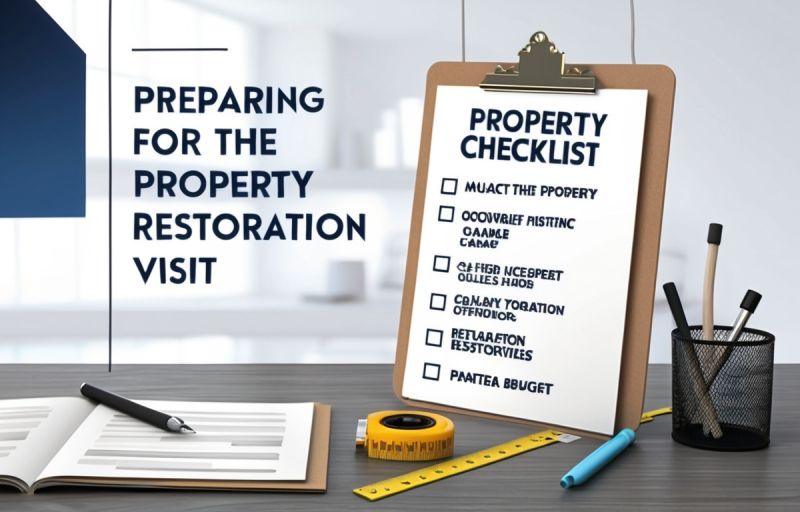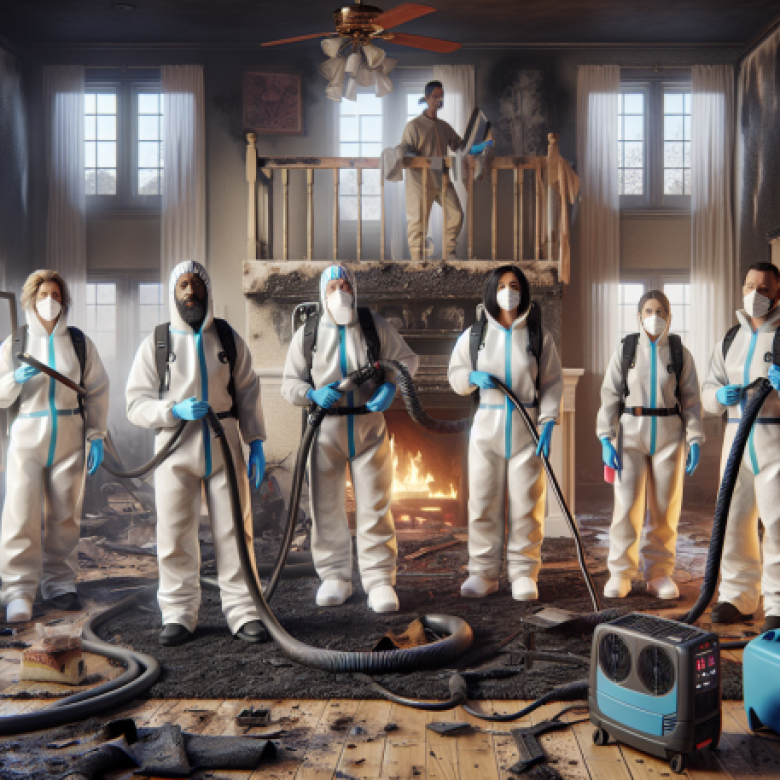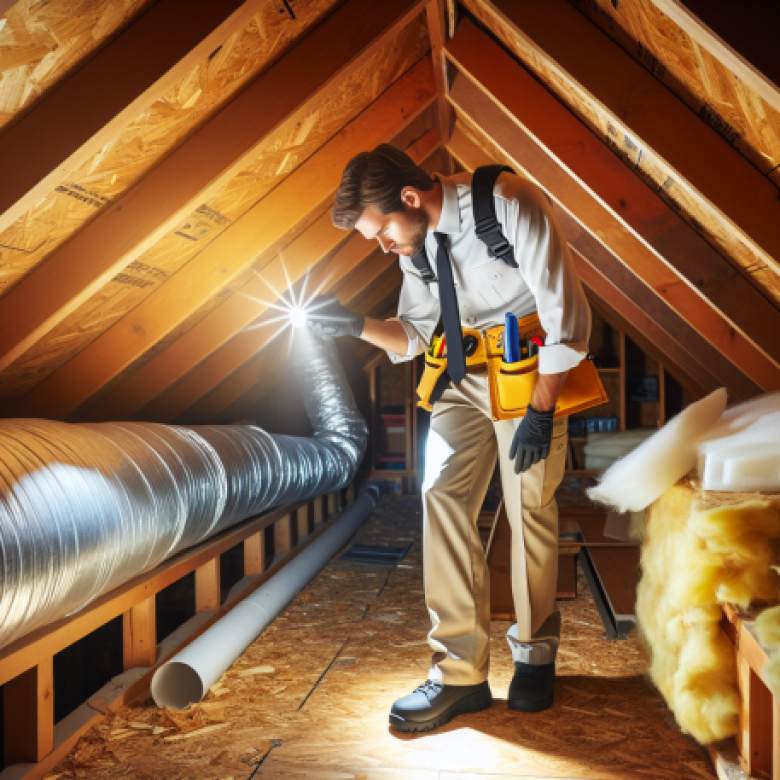When preparing for a property restoration visit, having a comprehensive checklist can make all the difference in ensuring a smooth and efficient process. At Projekt Property Restoration, we understand the challenges that come with property damage, whether it’s from water, fire, mold, or biohazard incidents. With over 16 years of experience in commercial and residential property restoration, our fully licensed and insured team is dedicated to providing quality service tailored to your specific needs. Located in Aventura, FL, we are available 24/7 to respond to emergencies and help restore your property to its pre-loss condition.
In this blog post, we will guide you through essential steps to take before our experts arrive, ensuring that you are well-prepared for the restoration process. From assessing the damage to gathering necessary documentation, our checklist will help streamline communication and enhance the efficiency of our services. Whether you are dealing with water damage restoration, mold remediation, or fire damage recovery, being prepared can significantly impact the outcome of your restoration project. Let’s dive into the key elements of preparing for a property restoration visit and how you can make the most of our services at Projekt Property Restoration.
Essential Items to Gather Before the Visit
Preparing for a property restoration visit requires careful planning and organization to ensure that the process runs smoothly and efficiently. Whether you are dealing with water damage, fire damage, or mold issues, gathering essential items beforehand can significantly impact the restoration outcome. Here are some key items to consider collecting before the visit, which will help streamline the process and facilitate effective communication with restoration professionals.
First and foremost, it is crucial to have a clear understanding of the damage that has occurred. Documenting the extent of the damage with photographs can provide valuable insights for the restoration team. Take pictures of affected areas, including walls, floors, and any personal belongings that may have been damaged. This visual evidence will not only help in assessing the situation but also assist in insurance claims.
Next, gather any relevant documentation that may be needed during the restoration process. This includes insurance policies, previous inspection reports, and any correspondence with your insurance company. Having these documents readily available will expedite the claims process and ensure that the restoration team has all the necessary information to proceed effectively.
In addition to documentation, it is advisable to compile a list of any personal items that have been affected by the damage. This list should include furniture, electronics, and other valuables that may require special attention during the restoration process. By providing this inventory to the restoration team, you can help them prioritize their efforts and ensure that nothing is overlooked.
Another essential item to gather is a list of questions or concerns you may have regarding the restoration process. This could include inquiries about the timeline, the methods used for restoration, and any potential risks associated with the damage. Having a prepared list of questions will facilitate a productive discussion with the restoration professionals and ensure that you have a clear understanding of the steps involved.
Safety should also be a top priority when preparing for a restoration visit. If the damage involves hazardous materials, such as mold or biohazards, it is important to gather personal protective equipment (PPE) such as gloves, masks, and goggles. This will help protect you and your family from potential health risks during the restoration process.
Additionally, consider gathering any necessary tools or supplies that may assist the restoration team. This could include extension cords, buckets, or even a dehumidifier if you have one available. While the restoration professionals will come equipped with their own tools, having extra supplies on hand can be beneficial, especially in emergency situations.
Lastly, ensure that you have a clear plan for your living arrangements during the restoration process. Depending on the extent of the damage, you may need to temporarily relocate. Having a list of nearby hotels or accommodations can help ease the transition and provide peace of mind during the restoration period.
In summary, preparing for a property restoration visit involves gathering essential items that will facilitate the process and ensure effective communication with restoration professionals. By documenting the damage, compiling relevant documentation, creating an inventory of affected personal items, preparing questions, prioritizing safety, and having a plan for living arrangements, you can help ensure a smoother restoration experience. For more information on property restoration services, feel free to visit our contact page or explore our calculator for estimating restoration costs. Remember, being well-prepared can make all the difference in navigating the challenges of property restoration.
"Preparation is the key to success." – Alexander Graham Bell
For further reading on specific restoration services, you can check out our pages on water damage restoration and mold assessment.
Key Questions to Ask Your Restoration Team
When preparing for a property restoration visit, it is essential to engage with your restoration team effectively. Asking the right questions can help you understand the process, set expectations, and ensure that you are making informed decisions about the restoration of your property. Here are some key questions to consider when speaking with your restoration team.
First, inquire about their experience and qualifications. Understanding the background of the restoration team can give you confidence in their ability to handle your specific situation. Ask how long they have been in the restoration business and whether they have experience with the type of damage you are facing, whether it is water damage, fire damage, or mold issues. You might also want to ask if they are certified by relevant organizations, as this can indicate a level of professionalism and adherence to industry standards.
Next, discuss the restoration process in detail. Ask your team to explain the steps they will take to restore your property. This should include an assessment of the damage, the methods they will use for cleanup and restoration, and the estimated timeline for completion. Understanding the process can help you prepare for what to expect and how to manage your property during the restoration.
It is also crucial to ask about the equipment and techniques they will use. Restoration often involves specialized equipment such as dehumidifiers, air movers, and infrared thermal imaging tools. Inquire about how these tools will be utilized to ensure effective restoration. Additionally, ask if they follow industry best practices and guidelines, as this can impact the quality of the restoration work.
Another important question is about the insurance process. Ask your restoration team how they work with insurance companies and whether they can assist you in filing a claim. Understanding how the financial aspects will be handled can alleviate some stress during a challenging time. You may also want to confirm whether they provide a detailed estimate and documentation that can be submitted to your insurance provider.
Communication is key during any restoration project. Ask how often you can expect updates on the progress of the work and who your main point of contact will be. Establishing clear lines of communication can help ensure that you are informed throughout the process and can address any concerns that may arise.
Additionally, inquire about the safety measures they have in place. Restoration work can sometimes involve hazardous materials, especially in cases of mold or biohazard cleanup. Ask what safety protocols they follow to protect both their workers and your property. This can include the use of personal protective equipment and proper disposal methods for hazardous materials.
It is also wise to ask about warranties or guarantees on their work. Understanding what kind of follow-up services or guarantees they offer can provide peace of mind. For instance, if mold is removed, will they offer a guarantee that it will not return? Knowing the terms of any warranties can help you feel more secure in your decision to hire them.
Lastly, consider asking for references or testimonials from previous clients. Hearing about others’ experiences can give you insight into the quality of work and customer service you can expect. A reputable restoration team should be willing to provide references or direct you to reviews on their services.
By asking these key questions, you can ensure that you are well-informed and prepared for the restoration process. Engaging with your restoration team in this way not only helps you understand the work being done but also fosters a collaborative relationship that can lead to a successful restoration outcome. For more information on restoration services, you can visit our contact page or explore our calculator for estimating restoration costs.
In conclusion, preparing for a property restoration visit is a crucial step in ensuring a smooth and efficient recovery process. By following the checklist outlined in this blog, you can minimize stress and maximize the effectiveness of the restoration team. Remember to document the damage, communicate clearly with your restoration professionals, and secure your property to prevent further issues. Being organized and proactive not only helps the restoration team do their job more effectively but also gives you peace of mind during a challenging time. With the right preparation, you can navigate the restoration process with confidence, paving the way for a successful recovery of your property.





